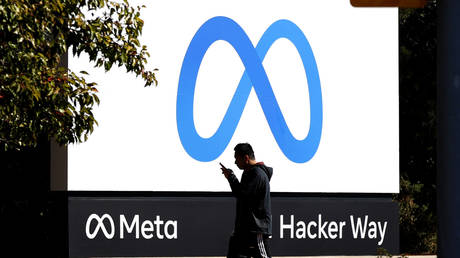AI is ‘quite stupid’ – Meta
A high-ranking official from Facebook parent company Meta has dismissed concerns about the potential dangers of artificial intelligence Read Full Article at RT.com

The ‘hype’ behind artificial intelligence has surpassed what it is actually capable of, Meta has said
Current artificial intelligence (AI) models are “quite stupid” and “far short” of being powerful enough to pose any form of distinct threat to humanity, Meta President of Global Affairs Nick Clegg has said.
Clegg, the former United Kingdom deputy prime minister who joined Facebook’s parent company Meta in 2018, told BBC Radio 4 on Wednesday that the “hype” behind the potential pitfalls of artificial intelligence has “run ahead of the technology.”
Discussing the launch of Meta’s open source Llama 2 language model, or ‘chatbot’ as the tech has become known, Clegg said that the “existential warnings” that have come in step with the current generation of AI “relate to models that don’t currently exist.”
“The vision where AI develops an autonomy and agency on its own” is not possible, Clegg said, adding that “the models that we’re open-sourcing are far, far, far short of that. In fact, in many ways, they’re quite stupid.”
Clegg’s comments come after Meta chief Mark Zuckerberg recently revealed that a commercial version of the Llama 2 language model is to be released online for free, affording tech startups and other companies a low-cost alternative to Open AI’s ChatGPT and Google’s Bard.
The recent advent of artificial intelligence language models has posed several existential questions as it relates to the creation and distribution of disinformation or misinformation online. It has also raised concerns about the potential impact on employment in certain industries.
Geoffrey Hinton, a former Google engineer who quit the company earlier this year and whose nickname was the ‘Godfather of AI’, said in May that he believed the technology was “being developed in a society that is not designed to use it for everybody’s good.”
Tech leaders, such as Elon Musk and Steve Wozniak, were also among the co-signers of an open letter earlier this year calling for aggressive, independent regulation of the artificial intelligence sector. Other critics, such as computer science expert Wendy Hall, have argued that Meta providing open-source blueprints for its language model is “a bit like giving people the template to build a nuclear bomb.”
But Clegg believes that Llama 2’s open source release will provide a “wisdom of crowds” boost to the technology – a scenario he says is preferable to leaving artificial intelligence entrusted to the “clammy hands” of Big Tech.






















